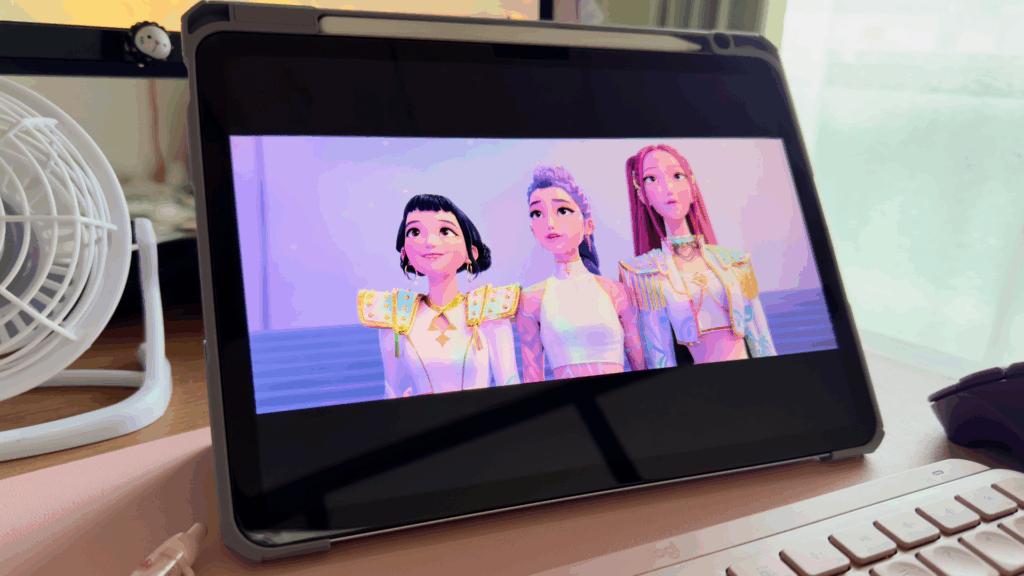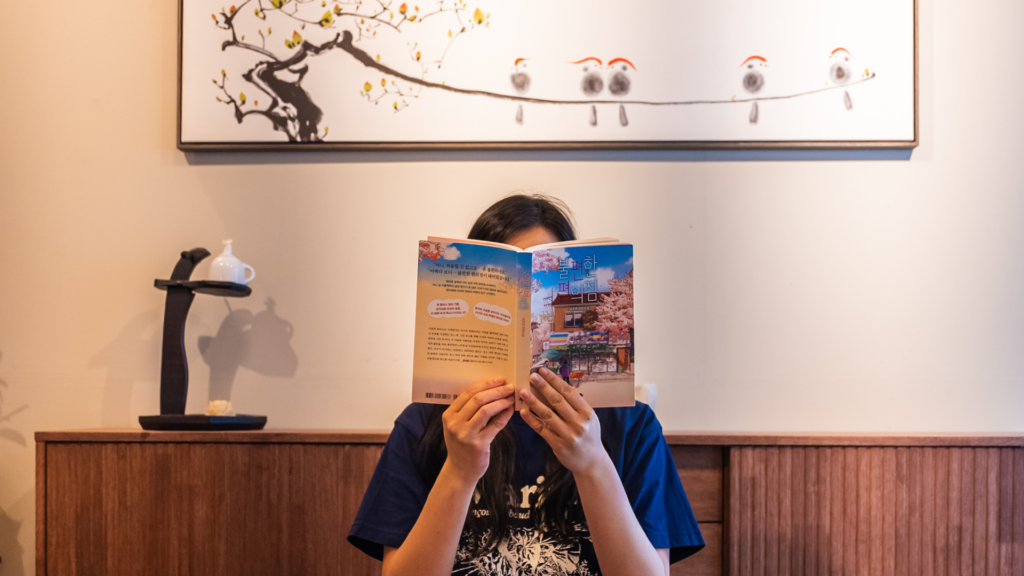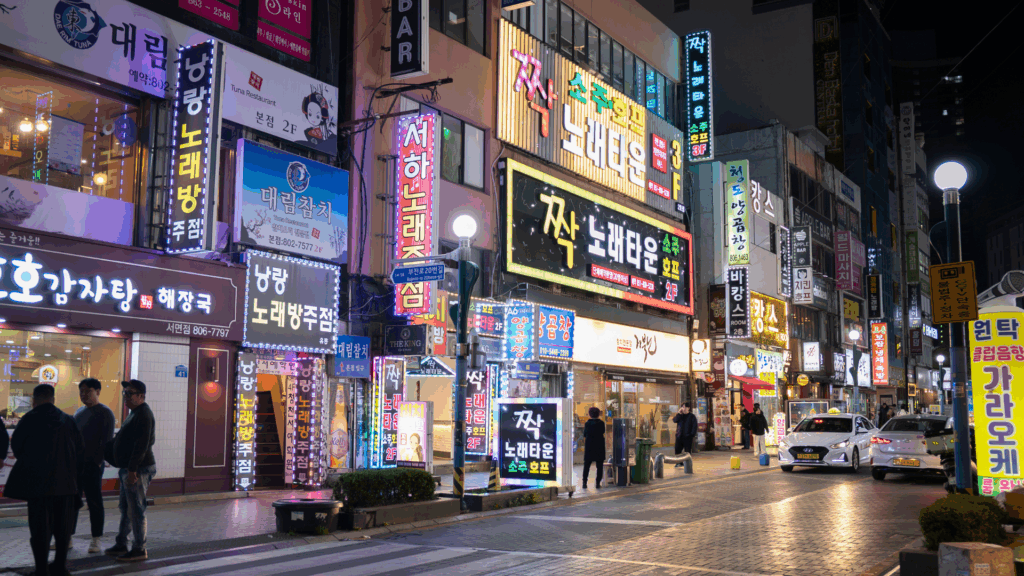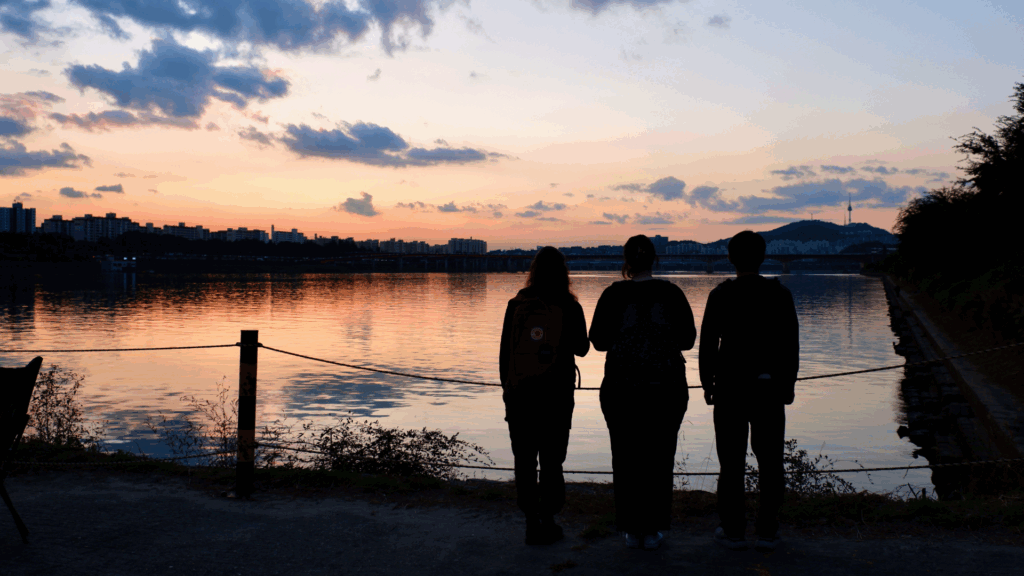The world of KPop Demon Hunters is an intoxicating blend of romance, darkness, and Korean cultural motifs. Every frame brims with myth, every song resonates with emotion, and every scene carries layers of meaning rooted in Korean folklore. For those new to Korean culture, fear not: this guide will unravel the magic, explaining the mystical concepts, the hunters, and the cultural references while immersing you in the enigmatic atmosphere of this movies.
Here are 7 secrets that will pull you deeper into the world of KPop Demon Hunters.
1. What is KPop Demon Hunters about?
By day, Rumi, Mira, and Zoey are K-pop superstars dazzling stadiums with their performances. But in secret, they are skilled KPop demon hunters, defending their fans from hidden supernatural threats. Their toughest challenge arises when a rival boy band, secretly composed of demons, appears, putting both their music careers and their mission to the test.
Did you know who are the main voices behind KPop Demon Hunters? Rumi is voiced by Arden Cho with singing by EJAE, Mira is voiced by May Hong with Audrey Nuna providing her songs, and Zoey is voiced by Ji-young Yoo with Rei Ami as her singing voice.
Legendary actors like Lee Byung-hun voice the fearsome Gwi-Ma, Daniel Dae Kim brings Healer Han to life, Yunjin Kim plays Celine, and Ahn Hyo-seop voices Jinu. This incredible mix of talent adds depth and authenticity, making every confrontation with demons and every quiet moment feel magical and cinematic.
2. The truth about Gwi-ma and demons
In the world of KPop Demon Hunters, the greatest enemy is gwi-ma (귀마), the leader of all the other demons. The word breaks into gwi (귀, ghost/spirit) and ma (마, demon/evil entity). A gwi-ma is not just a mindless monster; it is a corrupted spirit, often born from the unfulfilled regrets of humans. The gwi-ma also controls the other demons that the K-Pop Demon Hunters face.
These demons can shape-shift, whisper thoughts into human minds, and feed on negative emotions. In Korean shamanism (muism), similar beings are said to haunt crossroads, forests, or abandoned houses. The show portrays gwi-ma as both terrifying and tragic; some were once human lovers, parents, or friends, now consumed by darkness.
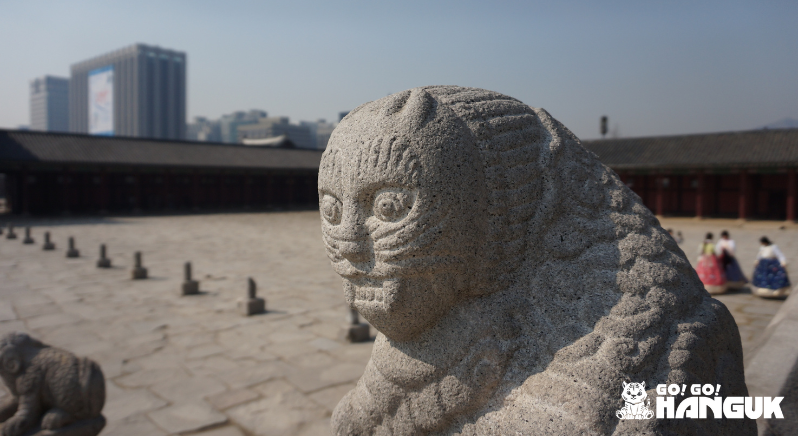
3. The Tiger and the Magpie: An ancient warning
KPop Demon Hunters features an eerie bedtime story, 호랑이와 까치 (Horangi wa Kkachi), “The Tiger and the Magpie.” In Korean folklore, the magpie (kkachi) is a harbinger of good news, while the tiger (horangi) is a fierce but not always evil guardian.
The tale goes that a tiger stalks a village on New Year’s Eve, but a magpie’s persistent cries alert the people, saving them. In the show, the magpie appears as a recurring symbol; whenever a magpie’s call is heard, a hunter knows a gwi-ma is near.
By blending this myth with the plot, the creators tie ancient superstitions into modern storytelling, giving each hunt a feeling of destiny and inevitability.
4. The KPop Demon Hunters: Zoey, Rumi, and Mira
Each hunter’s name carries deep meaning, and their chosen weapon perfectly mirrors their personality and combat style in KPop Demon Hunters.
“Rumi” evokes a sense of light and illumination, much like the English word “luminary.” In hanja, the character “미” (mi) also carries the meaning of “beauty,” adding a graceful layer to her name.
She wields the Sain-geom (사인검, pronounced “sa-in-gum”), also known as the Sword of Four Tigers, a legendary weapon symbolizing protection and authority in Korean mythology. Her disciplined and strategic style mirrors the sword’s storied legacy.
“Mira” closely resembles “미래” (mirae), the Korean word for “future,” giving her character a sense of vision and forward-looking purpose.
She is armed with a Gokdo (곡도, pronounced “gok-do”), a traditional Korean polearm that allows her to strike with both reach and precision. This weapon highlights her patience, timing, and mastery of fluid martial techniques, deeply rooted in Korea’s historical combat traditions.
“Zoey“, written in Korean as “조이,” sounds just like the English word “Joy.” While it conveys brightness and hope, its Greek origin meaning “life” adds another layer of symbolism. Perfect for a character who brings vitality to a world shadowed by darkness.
She is a master of dual daggers and shadow blades, moving with agility and precision. Her weaponry reflects her cunning and adaptability, echoing the swift, precise movements found in traditional Korean martial arts.
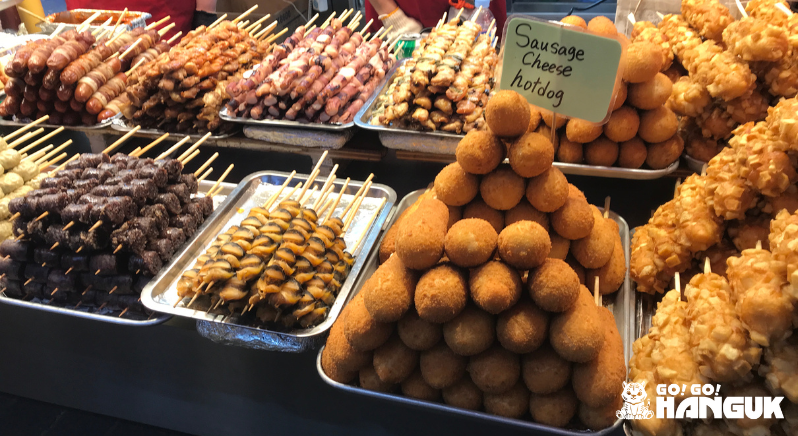
5. Street food and cultural immersion
In several occasions, the hunters share meals that ground the fantastical story in everyday life. You will notice dishes like kimbap (김밥, gim-bap), naengmyeon (냉면, naeng-myeon), hotteok (호떡, ho-tteok), and the characters’ favorite cup ramyeon (컵라면, keop ramyeon)!
If you look closely at the scenes of KPop Demon Hunters, you will also find various street foods like fishcake skewers, sundae (blood sausage), and Korean corn dogs. These foods provide a comforting contrast to the otherwise perilous world of demons. Curious to discover other yummy Korean street foods? Check this article where we unravel more dishes!
Eating together is a motif in Korean dramas and music videos, symbolizing community, trust, and fleeting human connection, reminding viewers that even in darkness, life persists.
6. The OST: “Golden” and “What it sounds like”
The OST of KPop Demon Hunters isn’t just background. It narrates the story. Golden pulses with determination and the weight of responsibility, echoing the struggles of Zoey, Rumi, and Mira as they battle demons. Lines like “I’m done hidin’, now I’m shinin’ / Like I’m born to be” capture the uplifting sense of emerging from darkness into light.
Similarly, What It Sounds Like expresses this balance with lyrics such as “Truth after all this time, our voices all combined / When darkness meets the light, this is what it sounds like.” Both songs echo the Korean philosophical concept of yin and yang, highlighting the harmony between darkness and light.
7. Love in the time of shadows
No romantic-dark story is complete without a love that feels like a curse. In the final arc, the leader of the KPop Demon Hunters falls for Jinu, a demon who was human a long time ago.
This echoes the tragic lovers of Korean folktales, like Chunhyangga, where devotion is tested against impossible odds. In Free, the lyrics “We could be free, free / We can’t fix it if we never face it / Let the past be the past ’til it’s weightless” convey a sense of protection and hope, suggesting that confronting challenges and releasing past burdens allows the characters to find freedom and inner strength.
If you haven’t watched it yet, now’s the time to dive in, and if you have, this article sheds light on how Korean folklore and culture merge with dark romance for a thrilling, liberating experience.
For more information, keep following the Go! Go! Hanguk blog and don’t hesitate to contact us about living and studying in Korea. We offer free support for student visa and language course application, accommodation and much more!
